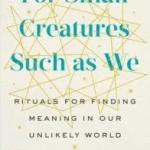If we take eternity to mean not infinite temporal duration but timelessness, then eternal life belongs to those who live in the present. – Ludwig Wittgenstein
The idea of timelessness is encountered in many, perhaps most, religious and spiritual traditions. Often it is presented literally as a special realm apart from Nature – heaven for instance. This is probably the understanding which most people have of it. But in the writings of many mystics, philosophers and saints, it refers to an experience rather than a literal realm.
Most of us will never have an experience of timelessness as deep and pervasive as that of the great mystics but many of us have had a taste of this experience. Perhaps while viewing a stunning sunset, or in the presence of a captivating person or a work of art, or if we are religious, it may be during a ritual or a prayer – whatever, we’re suddenly just completely present, completely there.
When we are having a rough time in our life, such moments can seem like salvation, and we might wish to stay in such a state endlessly – to leave this troublesome, time-ridden world. Perhaps this is the reason we often find the notion of salvation linked to that of eternity.
It should be noted here that the notion of time as it applies to our experience is not the same as the time of physics. The time of physics is, for all practical purposes, infinitely narrow. Thus physics can divide a single second into roughly 2 x 10^-44 Planck units. The time of experience, what is often called psychological time, is not experienced as an extreme constriction, but can seem quite expansive. Indeed, the experience of timelessness is just that sense of expanding time.
What is Time?
St. Augustine wrote: “What then is time? If no one asks me, I know what it is. If I wish to explain it to him who asks, I do not know.” If we don’t think about it, if we take it for granted, there is nothing perplexing about time. But if we really start to inquire into nature of time, it becomes very perplexing.
One of the most commonplace metaphors for time is that it flows like a river. In this metaphor, time is considered as perpetual change. But does time actually change? It seems to me that while events change, move from present to past, time is always present. Time is what allows change to happen, but is time a part of that change? We don’t think of space as constantly changing as the various objects move about within it. Is time different from space in this regard? If we are going to speak of time as a river, isn’t time more like the banks of the river and the events passing in succession like the water?
Perhaps we so closely associate the idea of time with movement because our entire sense of time and what we call its passage is based on movement. The movement of the earth around the sun, the cycles of the moon, the earth’s daily rotation are how we mark the year, the month and the day. For us who grew up with analog clocks, the circular movement of the hands marked the hours, minutes, and seconds. It would seem that it is only in movement that we can form an idea of time. (1)
An experience of timelessness, then, would seem to be an experience of stasis. But in my experience, this is not correct. There is something quite dynamic about the experience. Rather than the word “timelessness,” which is easily mistaken for the supernaturalistic idea of eternity, perhaps there is a better term we could use, one that does not suggest stasis. The term I’ve come to like is “zero ohms.”
The ohm is a measure of resistance in an electrical circuit. Most conducting materials, such as copper, create some resistance. Such a resistance causes a reduction of voltage. Conducting materials that have no resistance are called superconductors. To have zero ohms is to be a superconductor. To be completely in the present, we need to become a kind of superconductor of awareness; to cultivate our awareness so that events can pass through it without disturbance, without resistance.
Desire creates resistance. When we desire, we experience the time between the present moment and the time when our desire is fulfilled, as a kind of stickiness, a resistance. Even small desires make us aware of time and the sense of its presence and passage. Generally, such resistance is unpleasant, often mildly so, but sometimes torturously so. Only when no desire is present will we experience non-resistance, which is the equivalent of a sense of timelessness. (2)
The Buddha declared that desire was the root cause of suffering. The seated Buddha, freed of desire, is the image of timelessness, of zero ohms. There is a saying, particularly common in Tibetan Buddhism – om mani padme hum – which translates to English as “the jewel is in the lotus.” One interpretation of this saying is that the jewel is a symbol of the timeless and the lotus of the temporal. In this interpretation, the saying suggests that the eternal is in the temporal, which is to say that it is only through time that we humans can have a sense of the timeless. Or as the poet T. S. Eliot states it in the poem “Burnt Norton,” “Only through time is time conquered.”(3)
* * * * *
I’ve scarcely scratched the surface here of this vast topic. Even so, I hope it is enough to support the following conclusions: (1) in the experience of timelessness one experiences the very depths of spirituality, and (2) this experience, if understood as the experience of being fully in the present, is completely compatible with a naturalistic understanding of the world and thus with Spiritual Naturalism.
I’ve had people tell me that they find naturalistic spirituality rather shallow. I understand what they are saying, as I also find some forms of naturalistic spirituality shallow. But I think when we include the experience of timelessness, this experience that opens us to a communion with the depths of our being, naturalistic spirituality is as deep, if not deeper, than any other form of spirituality.
Subscribe to The Spiritual Naturalist Society
Learn about Membership in the Spiritual Naturalist Society
The Spiritual Naturalist Society works to spread awareness of spiritual naturalism as a way of life, develop its thought and practice, and help bring together like-minded practitioners in fellowship.
SNS strives to include diverse voices within the spectrum of naturalistic spirituality. Authors will vary in their opinions, terms, and outlook. The views of no single author therefore necessarily reflect those of all Spiritual Naturalists or of SNS.
__________
Notes:
(1) For a more comprehensive and in depth exploration of the many questions and paradoxes of the idea of time, I highly recommend the book Chronos: How Time Shapes Our Universe, By French physicist and thinker Etienne Klein.
(2) I provide an example of the experience of timelessness and how even a small desire shatters that experience in Bicycle Meditation, which was posted on this site on May 22, 2013.
(3) The theme of time and timelessness runs through the whole of the Four Quartets, of which “Burnt Norton” is the first of the four.













